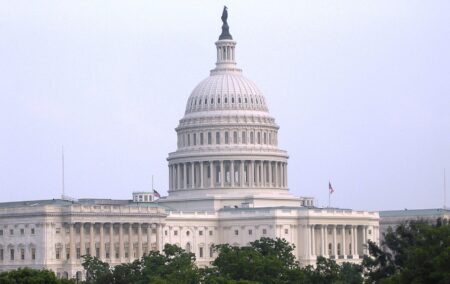The Institute of Race Relations has urged the government to ‘take immediate steps to repair its relationship with the United States in the wake of the … disastrous decision to hold military exercises with the Chinese and Russian navies’.
In a statement, the IRR warns that government’s posture in international affairs ‘now threatens South Africa’s relations with the US’.
The IRR notes: ‘This behaviour has not gone unnoticed in the US, where a group of members of the House of Representatives have drawn up Resolution 145 [see below] calling on the Biden administration to immediately review its bilateral relations with South Africa, including South Africa’s inclusion in the African Growth and Opportunity Act (AGOA) and the 2012 US-SA Trade and Investment Framework that have proved beneficial to South Africa’s economy.’
Despite the official policy of the South African government being one of neutrality in the growing international stand-off between the authoritarian Russian Federation and the People’s Republic of China (PRC) on the one hand, and ‘Western’ liberal democracies on the other, ‘the ANC government has shifted towards a more openly anti-Western posture’.
The IRR points out that, over the past year, the ANC has:
- continued a pattern of determinedly anti-Western behavior in the United Nations, where it is more likely to vote alongside North Korea than the world’s major democracies;
- held military exercises with the Russian and Chinese navy on the anniversary of Russia’s invasion of Ukraine, even as the Russian navy is being used to fire cruise missiles at Ukrainian cities, while at the same time cancelling planned exercises with the United States military;
- consented to the ANC Youth League sending “observers” to oversee the sham referenda held in territory occupied by Russia to legitimise its annexation of Ukrainian territory, referenda which the ANCYL described as “(a) beautiful, wonderful process”; and
- condemned the raft of EU sanctions against Russia as “draconian”.
‘Despite some initial criticism of Russia at the start of the invasion, the ANC government has since ventured little in the way of criticism of Russia or of China’s human rights record.’
This pattern of conduct is at odds with South Africa’s economic interests, the IRR says.
‘The US and its allies in Europe and the United Kingdom are South Africa’s largest trading partners, jointly surpassing the trade with SA’s largest individual trade partner, China, in both imports and exports.
‘The SA government’s violation of its own stated neutrality not only threatens the country’s economic prospects, but runs counter to the values enshrined in the Constitution and the country’s interest. SA’s important economic ties do not need to be blind to the very important differences between our commitments to individual rights and the authoritarian values of the Chinese state. These are not differences limited to the elite of our country. As research by the Social Research Foundation has found, South Africans would much rather live in the United Kingdom and United States than in Cuba or Russia.’
The IRR says the ‘strengthening of relations with Russia and China seems to be driven by nothing more than the ANC government’s desire to purse an outdated, Cold-War-era anti-Western agenda even at the expense of the country’s position in global affairs’.
IRR analyst Nicholas Lorimer says: ‘The ANC government has prioritised its own pet ideological projects at the expense of ordinary South Africans, who have little desire to be drawn into a major geo-political conflict and have much to lose if the government sides with authoritarian regimes.’
The IRR argues that South Africa ‘should immediately cease antagonising the US and its major trading partners in Europe. It should return to its stated policy of neutrality, lest the country finds itself involved in a global power struggle it is not equipped to handle and has nothing to gain from.’
Here is a copy of Resolution 145:
[Image: Phillip Roulain from Pixabay]

